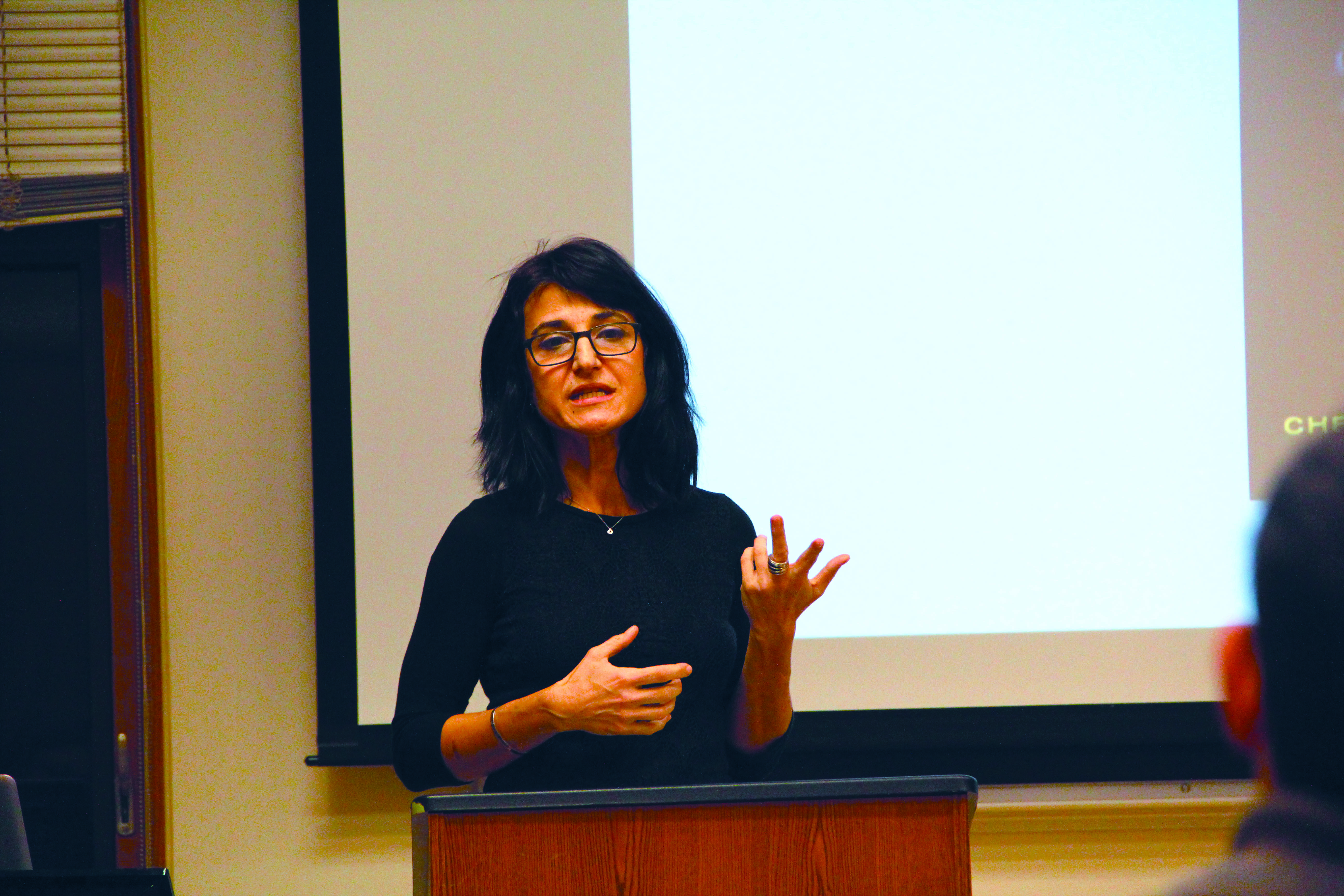
Patricia Barbeito, a professor of English at the Rhode Island School of Design, spoke to a handful of Yale community members Tuesday about the global re-emergence of the “crime noir” literary genre and its implications as a tool for understanding globalization.
Entitled “Crisis Noir: Petros Markaris’ Detective Novels and the Greek Financial Crisis,” Barbeito’s talk discussed Greek author Petros Markaris’ trilogy of detective novels about Greece’s financial crisis, arguing that Markaris’ use of the crime noir genre challenges societal conventions and provides insight on Greek culture beyond recent headlines, which tend to focus on “traumatic” economic and political events. In her talk, Barbeito emphasized how artistic culture reflects an important aspect of Greek society often overlooked by the media — a view echoed by Hellenic Studies lecturer George Syrimis, who coordinated the event.
“Strangely, but also somewhat conventionally, the arts thrive in crisis,” Syrimis said. “There’s a big gap in the coverage of what’s going on in Greece artistically; it’s a little secret that there’s been a renaissance in Greece the last five years.”
The crime noir genre, which grew out of American economic turmoil in the ’20s and ’30s, has resurfaced and undergone reinvention in order to capture the modern moment, Barbeito said. Crime noir reveals cultural anxieties on both governmental and familial levels, exploring the effects of communism, class and corruption.
Crime novelists from various countries play with the conventions of noir fiction, Barbeito said, using traditional character tropes — such as the “square-shouldered, whisky-slugging, trench coat-wearing … hyper male” who often acts as a crime noir protagonist — to show changes in modern society. Markaris’ own experiments, while playful, work to capture the Greek crisis as a complex experience.
“In Greece, there is a real exhaustion with political and economic narratives,” Barbeito said. “It’s up to the arts to come up with a new language to talk about the issues that people are confronting, and Markaris is picking up that torch with the Crisis trilogy in particular.”
Setting is integral to Markaris’ novels, which use geography as a way to understand character and culture, Barbeito explained. In Markaris’ novel, she noted, place functions as a character in its own right, posing the question of an environment’s “political potentiality,” and how that influences the way people interact within it.
Markaris’ Athenian “adopted home” provides a setting through which the novels’ protagonist Costas Haritos can explore the national psyche in light of capitalism’s failures, Barbeito said.
“Contemporary crime writers experiment with the conventions of the crime genre as entertainment,” Barbeito noted. “They insist, at the same time, on the political and cultural seriousness of their work.”
Barbeito argued that Markaris is part of a network of crime writers around the world, making his cultural observations pertinent beyond only Greece. She discussed Markaris’ particular focus on fostering understanding between Germany and Greece — influenced by his German education — for which he was awarded the Goethe Medal in 2013, Barbeito said.
Following the talk, Barbeito opened the floor to questions, engaging the audience in a dialogue on different interpretations of Markaris’ work. Maria Kaliambou, a senior lector in the Hellenic Studies Department, said that she found the constructive views and different readings of Markaris’ trilogy presented by audience members particularly engaging.
Gerasimus Katsan, a professor at Queens College in New York who attended the talk, praised Barbeito’s framing of Markaris’ work in the global context.
Kaliambou also emphasized the importance of the Hellenic Studies Department’s lecture series overall, which through workshops, seminars and conferences, provides perspective to the Yale community about Greek culture both within Greece and beyond.
“Greece, or any other culture and community, cannot be reduced to numbers, which is what we have been hearing in the last years about Greece,” Syrimis said. “I want students to walk away knowing that Greece is not simply a bankrupt economy, but a vibrant, bright and hopeful cultural landscape.”







